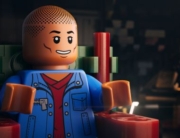Rare is the region with no sound of its own. For the Dominican Republic: merengue and bachata. For Lebanon: dabke. For Angola: death metal? In Jeremy Xido’s docu—dare I say-rock-you—mentary Death Metal Angola, we learn that tragedy can make way for some serious cultural cross-pollination. Of course, a genre’s success on foreign soil is directly influenced by the ease of its arrival. Prior to globalization and the Internet, the chances of Western rock music cropping up in southern Africa were pretty unlikely.
Documentaries like Searching for Sugarman and A Band Called Death illuminate rare instances in which entire communities bond over stumbled-upon sonic obscurities in the pre-Google era, but it’s no question that the Web’s presence has largely enabled scenes to sprout far from their place of origin.
Death metal grew out of the heavy metal movements in the U.S. and UK of the 1980s, which quickly splintered into several tedious subgenres thereafter: thrash metal, black metal, and deathcore to name but a few. Staples of this particular sound include rapid, distorted guitar riffs, double kick drums, and deep growling screams about anything from political unrest to Satanism, though despite these extremes it’s a relatively harmless subculture.
The motives for creating such a severe musical profile are personal to each band, but considering death metal’s roots in Western democratic countries, one might wonder what all the noise is for other than for shock value. But if you consider the history of Angola, a nation that suffered 27 years of bloody civil war, it’s surprising that the music didn’t originate there.
The film mostly takes place in Huambo, the country’s second largest city, which is to this day littered with residual landmines from a war that left hundreds of thousands dead and countless others displaced and impoverished. There we meet Sonia Ferreira, undoubtedly the film’s heart and soul, who for years has run an orphanage, taking in as many children as she can and serving as mother to them all. Somehow on top of her daily work of watching over nearly 60 kids, she manages to have cultural aspirations as well: to put on Huambo’s first ever rock festival.
Her boyfriend, Wilker Flores, is her partner in the project. The two bonded over rock music from the moment they met, and Wilker, with his band Beyond Crush, has had a large hand in teaching the kids at the orphanage the ways of metal. The Huambo natives have embraced the subgenre wholeheartedly, forming bands of their own and expressing that for them it is cathartic, given the atrocities they’ve encountered during wartime. Organizing the festival is a mountainous task, and one that requires a budget far beyond what anyone can sacrifice.
I found myself wanting more focus on Sonia and her saintly work at the orphanage and less on the music, which, if you’re not a diehard fan, can be a bit grueling to sit through. That being said, this is clearly not about the music itself, but rather the collective coping mechanism of a population left for dead and their ability to mutate fury into something constructive. I can certainly dance to that beat.






Leave A Comment